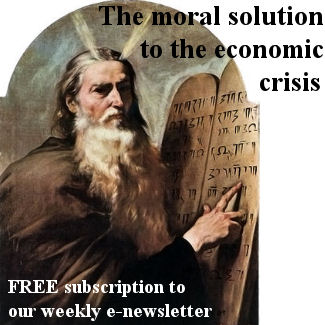 Usually we go to polls to decide which of the two parties will best represent us as a nation. However, on this Election Day, it was as if two nations battled it out and we decided on which one would rule over the other.
Usually we go to polls to decide which of the two parties will best represent us as a nation. However, on this Election Day, it was as if two nations battled it out and we decided on which one would rule over the other.
This is something that has been building up for decades. The red and blue states have solidified into defined regions to the point we have grown accustomed to seeing maps of our vast red heartland and our blue-spotted urban seaboards. In addition, a Culture War has long divided the nation over the hot button issues of abortion and homosexuality.
However, in past elections, there was a concerted attempt to patch over these differences. Back then, we had recourse to an American consensus that says that despite our differences we must all get along. It used to be that everyone tried to speak in a common patriotic language and follow a vaguely universal American culture. It was always believed that if everyone could just rally in their own way around the triple banner of God, family and country, we could happily remain one indivisible nation.
But in 2012, something of this national consensus was broken and we became not one nation but two. Perhaps a defining moment was when God was thrice denied at the Democratic National Convention. Another point of contention is the increasingly irreconcilable gap between those who revere our traditional American family and those who seek to redefine marriage or abort future generations. And then there was the provocative HHS mandate that forces employers to violate their consciences and offer contraception and abortifacients to employees as part of their “health benefits.”
All of these have contributed to a climate of tension that has reached the point that we no longer speak the same language or share the same apple pie. Everything has become so controversial that eating a chicken sandwich or drinking a cup of coffee can make a political statement. Two opposing positions have now coalesced, and the elections leave us divided with the impression of two battling nations and not two political parties.
 There have been many attempts to label these two nations inside America. One nation is Republican, conservative, religious and self-reliant. The other is Democrat, secular, liberal and government-dependant. However, such labels only give a superficial idea of the two nations, and do not get down to the root of the problem. The old categories of Democrat and Republican no longer serve us since neither nation feels fully interpreted inside these parties.
There have been many attempts to label these two nations inside America. One nation is Republican, conservative, religious and self-reliant. The other is Democrat, secular, liberal and government-dependant. However, such labels only give a superficial idea of the two nations, and do not get down to the root of the problem. The old categories of Democrat and Republican no longer serve us since neither nation feels fully interpreted inside these parties.
In times past, both nations pursued their goals within the broad framework of the American get-along consensus. The 2012 election shows how this framework is now unraveling.
The future of our nation depends on how we can articulate a new unifying vision for America. This is the central theme of the soon-to-be-released book, Return to Order: From a Frenzied Economy to an Organic Christian Order—Where We’ve Been, How We Got Here and Where We Need to Go.


